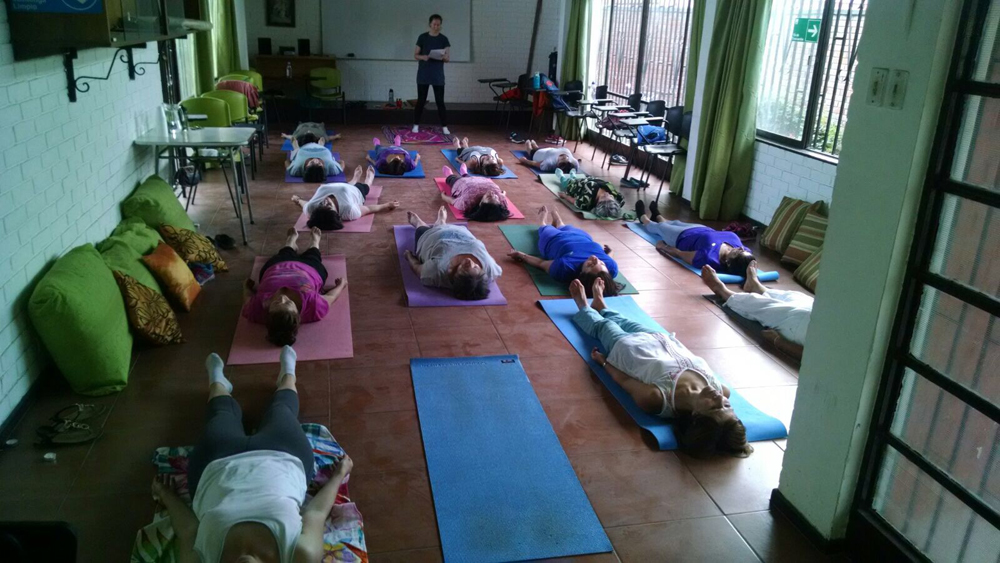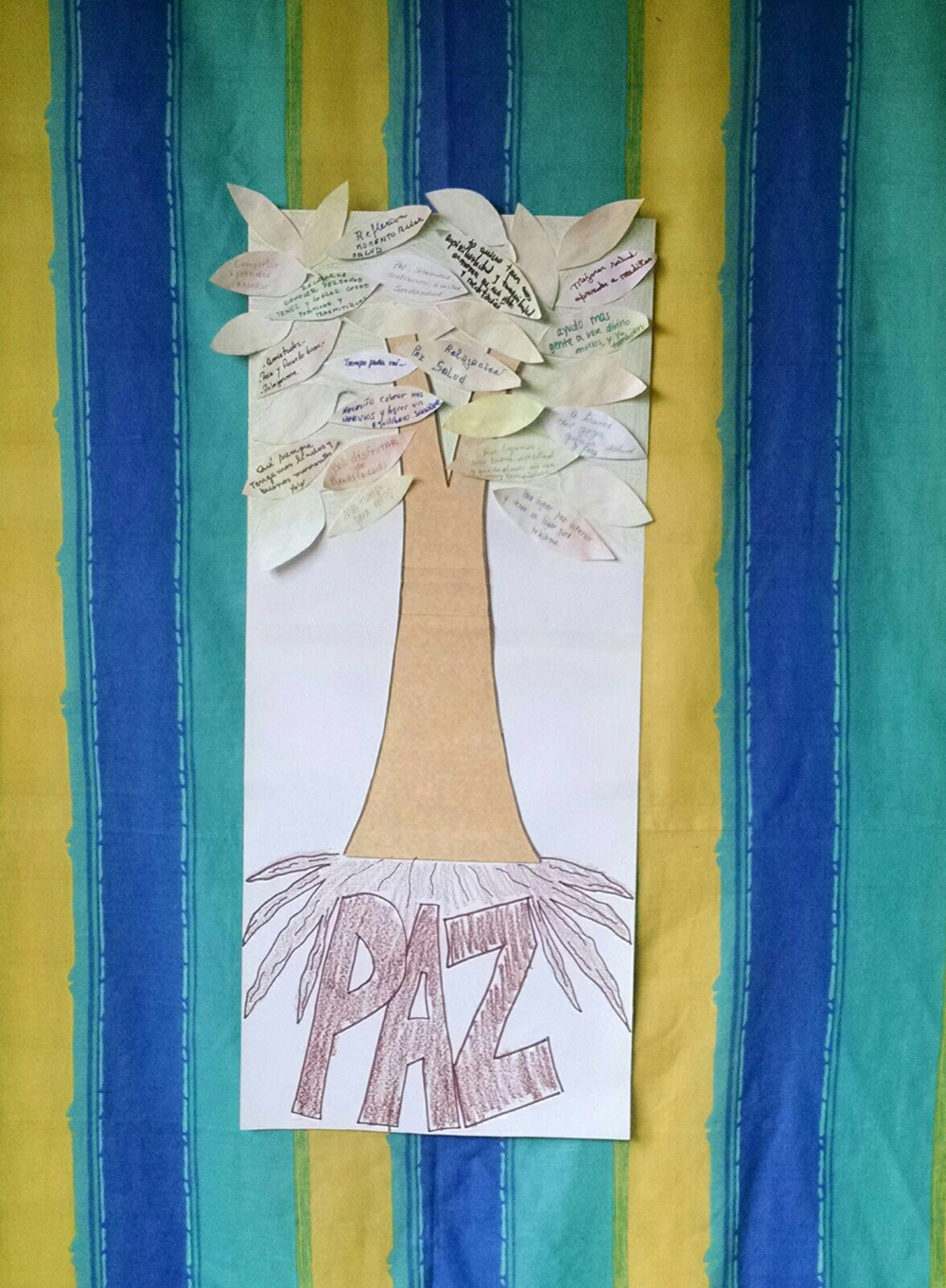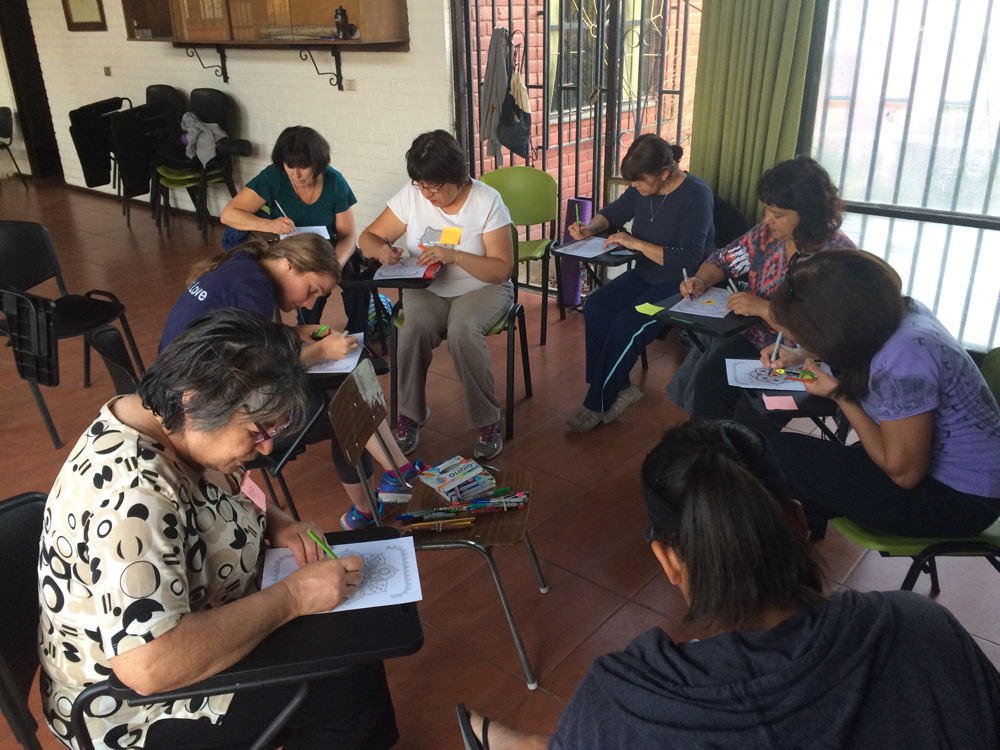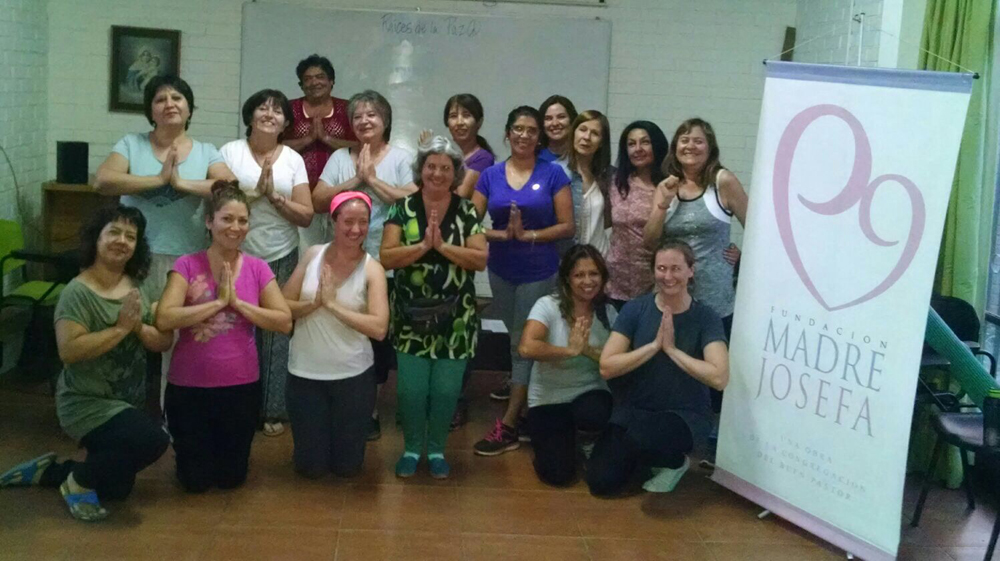
Santiago, Chile — Notes from the Field includes reports from young people volunteering in ministries of Catholic sisters. A partnership with Catholic Volunteer Network, the project began in the summer of 2015. This is our fifth round of bloggers: Katie Delaney is a Good Shepherd Volunteer with the Fundación Madre Josefa (Mother Joseph Foundation) in Santiago, Chile, and Lauren Magee is a Good Shepherd Volunteer at Hands of Hope, an income-generating project that provides dignified employment for villagers living with HIV/AIDS in Nong Khai, Thailand.
______
Santiago, Chile — In my first GSR blog, I talked about some special roots: those of California's famous redwood trees. This root system gains its strength from the connections forged among neighboring trees, enabling redwoods to endure more than hundreds of years of storms, droughts, and increasingly limited resources. Over the past two months, I've been overjoyed to see new roots grow through our latest class for the Fundación Madre Josefa: Raíces de la Paz (Roots of Peace).
In early January, a number of women who had participated in our foundation's programs in years past expressed interest in a yoga class. One of the Good Shepherd Volunteers who served here from 2015 to 2016, Laura, had shared her skills as a yoga instructor with the community. It was clear that her classes had created quite a following: Two years later, loyal yogis were still trying to practice!
To say I was intimidated was an understatement. While I loved yoga as a personal practice, I thought of it as just that — a personal practice. I had never received any formal training as a yoga instructor, and I had certainly never led a class. After meeting Laura at our orientation and hearing about the amazing impact she had from the participants here, I also knew I had some big shoes to fill!
But the requests kept coming in. With the encouragement of program staff, my community members, the participants, and Laura's blessing, I decided I would give it a shot on one condition: I would combine the yoga class with some activities I felt more comfortable facilitating.
I got the experience I needed from my time as a Lasallian Volunteer and as a graduate student with St. Mary's College of California's Masters of Leadership program. Both programs emphasized the correlation between our ability to care for ourselves and our ability to care for others. Through retreats, reflections and the guidance of many mentors, I discovered that taking time to reenergize and renew enabled me to be more present in the time I gave to those around me.
Having experienced this healing power in my own life, I wanted this class to provide an opportunity for the women of our foundation to develop their own self-care practices, too. When I asked a friend for a suggestion for the group's name, Raíces de la Paz was born.

The first class gathered March 16. To start, I invited everyone to share what inspired them to attend. Many women shared their hopes of taking time for themselves, improving mental and physical health, and having an opportunity for relaxation. Most of the mothers in the room shared how hard it was to balance their own needs with the needs of their families at home. I had anticipated these responses and felt excited by our shared intentions for the group. But one theme kept coming up that I had not focused on before: community.
For the longest time, I thought of self-care as a solitary practice. I even remember being a bit self-conscious earlier in the year when I told my community members that I was trying to practice meditation more on a daily basis. And yet here this class was, asking for just the opposite. These women didn't want to achieve enlightenment just for themselves — they wanted to grow with and for one another.

Over the past two months, we have created a mini-community of support. I try to plan every class like a mini-retreat, with a portion devoted to personal reflection, time for group discussion and, of course, always practicing some yoga. Whether it's coloring mandalas, practicing gratitude, reflecting on our day, spending time in nature, or asking each other fun questions, our self-care practices grow in meaning when we share them with others. Sometimes we may get off-task or -topic. But in those moments, the simple act of being present to each other is self-care in and of itself.

In a world rife with social injustice, political instability and environmental degradation, the storms of life can feel overwhelming. But like the redwoods, we can come together to strengthen our "roots" of peace — rituals that help us stay grounded no matter what trial or tribulation comes our way. When it comes down to it, we all need something to hold on to. And as the women in Raíces de la Paz have shown me, that's why we have each other.
[Katie Delaney is a Good Shepherd Volunteer in Santiago, Chile.]

